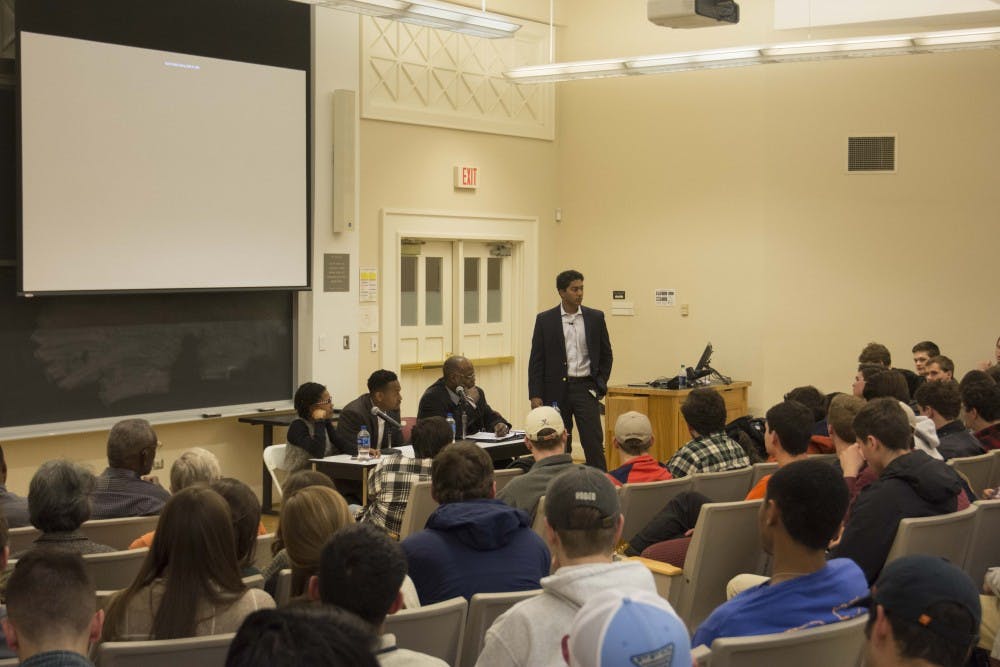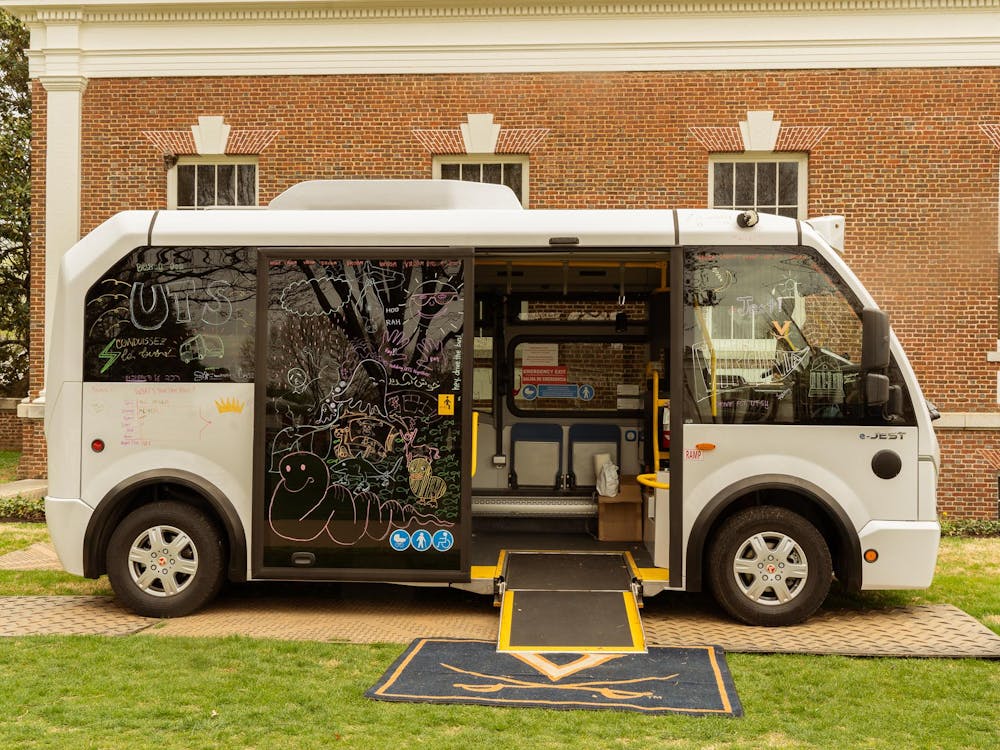The Inter-Fraternity Council partnered with the Corcoran Department of History to host a panel Tuesday to discuss the history of Greek Life and race at the University. The panel consisted of Ervin Jordan, an associate professor and research archivist at the Special Collections Library, B. Cameron Webb, an assistant professor of medicine, and fourth-year College and Education student Jasmine Zollar. The panel was moderated by Ashwanth Samuel, a third-year College student and IFC President.
Samuel said the purpose of the event was to educate members of both the IFC and University communities about the racial history of the University.
“The IFC wants to open a discussion and corresponding dialogue that will allow us to assess how we can continue progressing and growing as an institution that is reflective of not only our history, but the current context within which we are situated,” Samuel said. “The IFC hopes this will be an educational experience for its members and the University community more broadly.”
Jordan began the discussion with a brief overview of the racial history at the University.
“Throughout most of its history, the Greek system here has accepted African Americans as entertainers and service providers, but not as members,” Jordan said. “Racial academic and social traditions remain heavily influenced by Greek organizations, although its members are about 30 percent of the student population.”
Webb spoke about his experience in a black fraternity at the University from 2003 to 2005. During Webb’s second year, his fraternity was the first African-American Greek organization to have a house of their own.
“From a business standpoint, it made a lot of sense,” Webb said. “The University took that and called it something completely different … they called this post-racial U.Va. That’s not what this was, it’s not what it is. We’re not there.”
Zollar, a member of the National Pan-Hellenic Council sorority Delta Sigma Theta, spoke about her personal experience with race in Greek Life.
“The trend has been that the NPHC knows the IFC exists, and the IFC seems to not know the we exist,” Zollar said. “That, to me, speaks to the relationship between the IFC and NPHC, that there is no relationship by and large.”
During a question-and-answer session, the audience asked several questions concerning the steps University Greek Life could take to be more transparent. Both Zollar and Webb emphasized the importance of using existing systems, such as social media and newsletters, to reach out to different Greek councils at the University.
“You guys should look around, this is a very white room and it shouldn’t be,” Webb said. “That’s my hope for the University — that it continues to evolve and continues to change to be more inclusive.”
Tuesday night’s panel was among a series of events being hosted by the history department in response to the white nationalist events of August. During the fall 2017 semester, the history department also organized events on racial justice at the University, Civil War remembrance in Charlottesville and the recent history of the white nationalist “alt-right.” The department is planning several more events to follow Tuesday’s panel, including an event on athletics and race at the University.
Webb said the current student body of the University has a unique opportunity to address racial inequality after collectively experiencing the events of Aug. 11 and 12.
“At the end of the day, our society has to turn and face race at some point in time and not just line up on our respective sides,” Webb said. “I think this is possibly the generation of U.Va. students to really move the needle on this issue and make some important progress, because of the shared experience you have all had this year.”







